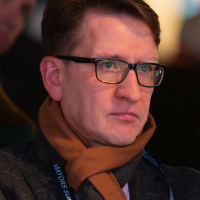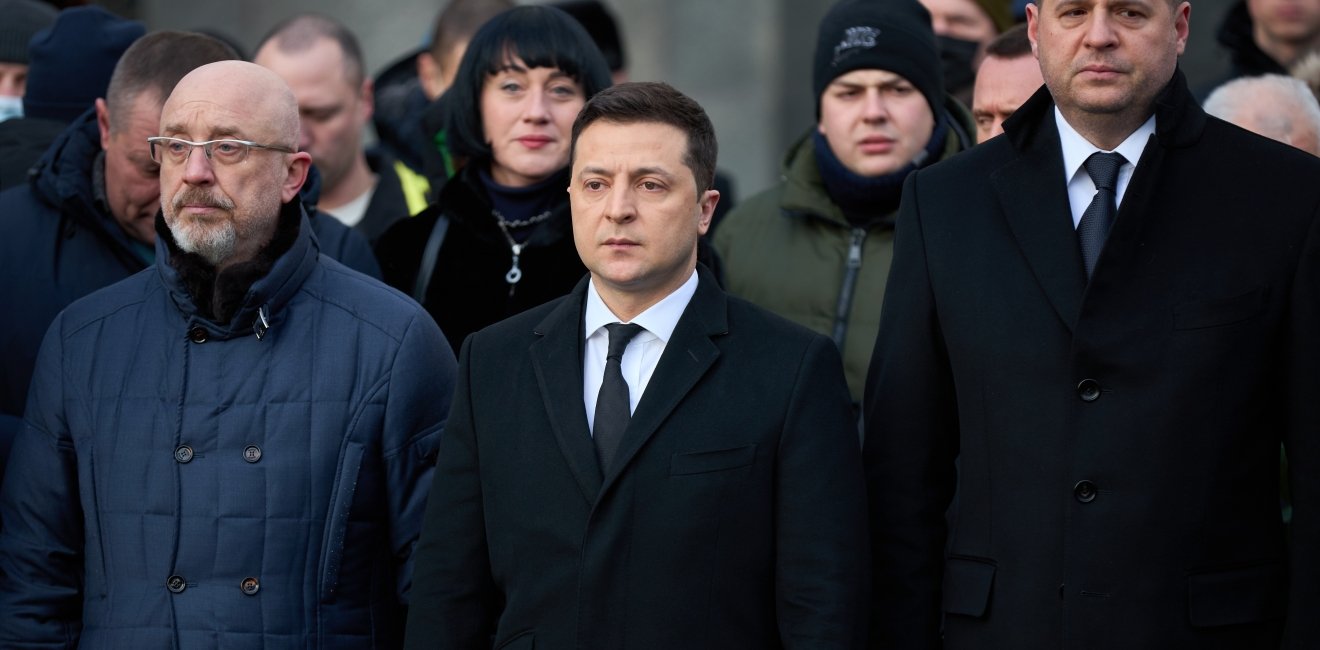
A blog of the Kennan Institute
BY SERHIY KUDELIA
If the Kremlin views Ukraine through the prism of broader challenges to its security emanating from NATO enlargement, a full-scale invasion of Ukraine is unlikely. It would only further exacerbate Russia’s security dilemmas by producing new NATO deployments in Central Europe and the Baltics and triggering major bilateral security assistance to Ukraine from individual NATO members, such as the United States, Canada, and the UK.
An attack on Ukraine would also make Russia more vulnerable by severely straining its military and economic resources. Russia’s already struggling economy would experience another major economic shock from a new round of more debilitating sanctions. Its military would have to deal with the simultaneous challenge of conducting asymmetric warfare on the Ukrainian territories it occupies and facing a conventional military threat on the territories free from Russian control.
Finally, Putin’s previous military campaigns have been popular in Russia only as long as they were either limited in scope, like the ones in Georgia, Syria, or Crimea, or fought over a clearly defined and legitimate goal, such as the counterterrorism campaign in Chechnya. Russians may view Ukraine as a failing state, but very few see it as a credible security threat. Moreover, most Russians now, particularly in the younger age group, report positive attitudes toward Ukraine, and only a small minority (19 percent) would like to see Russia and Ukraine merged into a single state. Hence the military invasion of a neighboring state on unclear grounds, with vaguely defined objectives and at tremendous cost for regular Russian citizens, is likely to be widely unpopular within the Russian society. A war that lacks domestic support is unlikely to be successful or sustained for a long time. With the decision to launch a military invasion of Ukraine, Putin would thus be gambling with the future of his entire power vertical and his own political legacy.
The only factor that could still lead Russian leaders to launch a military attack on Ukraine is the “imperial impulse,” which puts Ukraine at the center of their designs for reintegrating the post-Soviet space. In U.S. former national security adviser Zbigniew Brzezinski’s well-known dictum, Russia can return to its imperial form only “with Ukraine suborned and subordinated.” It is unlikely that anyone in the Kremlin believes that a military attack on Ukraine would lead to that country’s full subordination. However, it could be seen as the next step in the partitioning of the country, which started in the spring of 2014 with the annexation of Crimea and the de facto takeover of the Donbas. This would still be a risky strategy insofar as Ukrainian society is more unified and better prepared to face another Russian onslaught than it was eight years ago. However, under a war scenario, the Kremlin might try to pursue an incremental takeover of Ukrainian territory in the areas more open to renewed Russian rule in hopes of producing enough internal fissures to undermine the integrity of the rest of the Ukrainian state. Even if this strategy were to initially succeed, there is little doubt that over the long term, it would “condemn Russia not only to dictatorship but to poverty,” just as Brzezinski predicted.
Unfortunately, the latest actions of the Ukrainian authorities have only weakened their capacity to deal effectively with external challenges. The renewed attempts to prosecute former president Petro Poroshenko have deepened societal polarization and further divided the Ukrainian political class. President Zelensky’s recent statement ridiculing talk of a pending Russian invasion might have been be an attempt to stop the slide of the Ukrainian hryvnia and the downfall of government bonds. However, it also indicated a sort of blissful denial on the part of the Ukrainian authorities that drew immediate comparisons to the latest Netflix blockbuster, Don’t Look Up, in which government officials implore the public to ignore all signs of a comet about to hit Earth. It also sharply contrasted with U.S. president Joe Biden’s public prediction just several hours after Zelensky’s address that Russia would soon “move in” on Ukraine. Irrespective of the exact nature of the Russian threat, there is little doubt that the Ukrainian government today needs to promote consolidation and vigilance instead of pursuing petty political vendettas and questioning the conclusions of its key allies.
The opinions expressed in this article are those solely of the authors and do not reflect the views of the Kennan Institute.
Author


Kennan Institute
The Kennan Institute is the premier US center for advanced research on Eurasia and the oldest and largest regional program at the Woodrow Wilson International Center for Scholars. The Kennan Institute is committed to improving American understanding of Russia, Ukraine, Central Asia, the South Caucasus, and the surrounding region through research and exchange. Read more

Explore More in Focus Ukraine
Browse Focus Ukraine
Talking to the Dead to Heal the Living

Ukrainian Issue in Polish Elections




